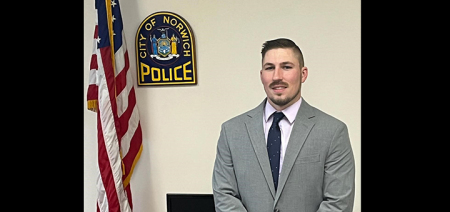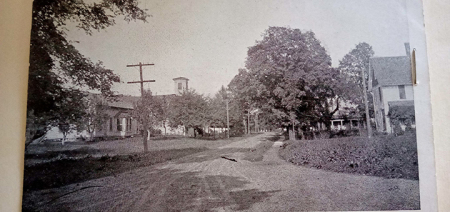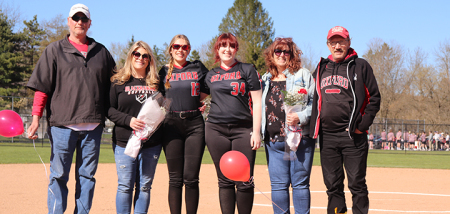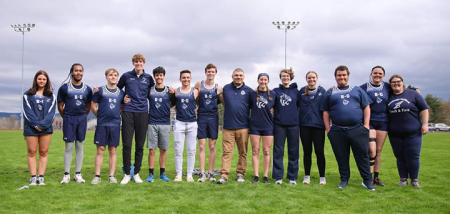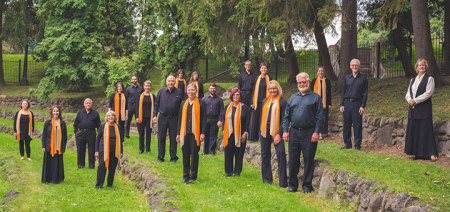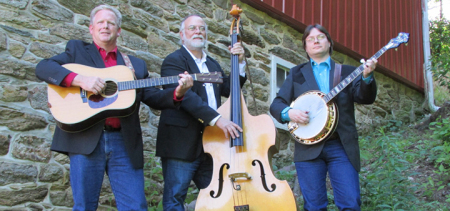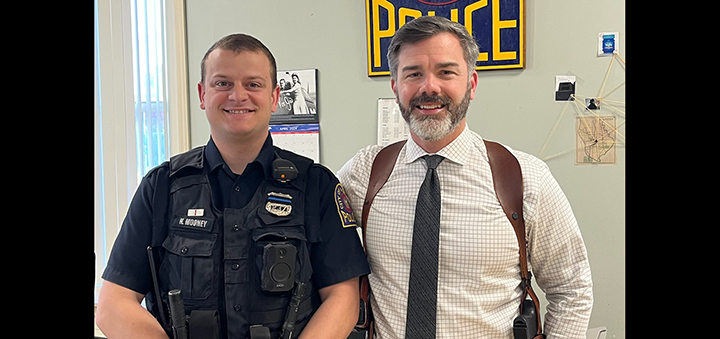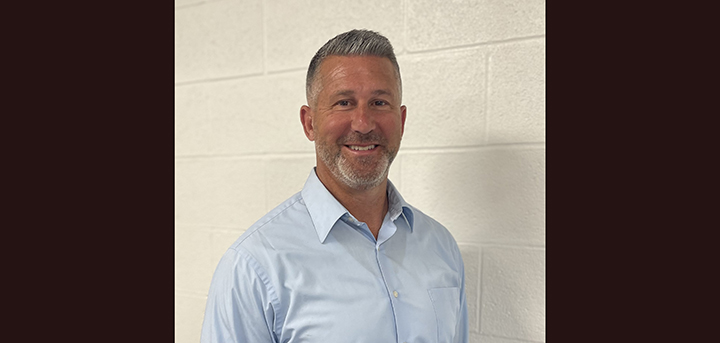Loss In Recovery: Local Groups Mourn Recent Drug Deaths
Published:
April 7th, 2023
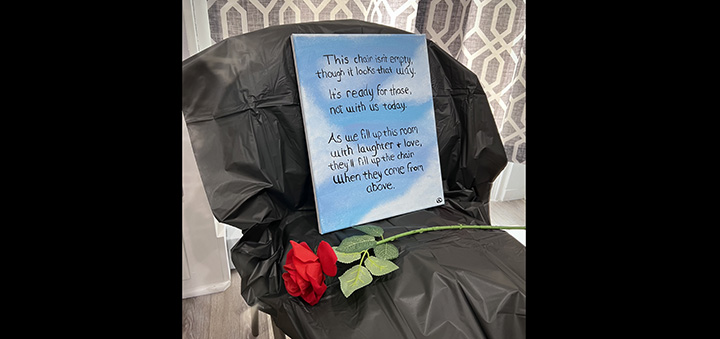 A chair set up at a local recovery group for one of the individuals lost to an overdose on Monday. Several resources are available in the City of Norwich through The Turning Point of Chenango County, Truth Pharm, and cvFree Silver SOAR. (Photo by Sarah Genter)
A chair set up at a local recovery group for one of the individuals lost to an overdose on Monday. Several resources are available in the City of Norwich through The Turning Point of Chenango County, Truth Pharm, and cvFree Silver SOAR. (Photo by Sarah Genter)
The following column reflects the thoughts and experiences of April Carney, facilitator of recovery meetings at Turning Point, and Cynthia Neal, leader of SOAR a 12-step faith-based recovery group at cvfree Silver (23 Silver St.)
When one begins working with individuals with substance use issues, they realize that the personal price could be great. The risk is always significant when you work one on one with people. Prior to this week, individuals had disappeared physically, but no one had died. This week, that changed.
It can be very difficult to lose an individual who has substance use disorder. There is sadness and tears for the physical loss. We won’t see that person anymore. The opportunities for bantering and phone conversations are gone.
No time left for encouraging, teaching, or praying. We may experience guilt. We wonder: did we miss something, should we have called, did we love enough, pray enough? And the list goes on.
How do we handle this grief and guilt? On Tuesday, as we gathered information and made sure we had secured the truth that we had lost a person in our group to an overdose, the realization that we had recovery group at 6 pm sunk in.
The question was asked, “Are we having group?” The answer, “Yes, we need each other!” We gathered as normal, but nothing was normal. We hugged, shared tears and began by sitting in our usual circle opening with prayer. We openly discussed our feelings and shared memories. In our midst was an empty chair, draped in black with a rose and a sign that read, “ This chair isn’t empty though it looks that way, it’s ready for those not with us today. As we fill up this room with laughter and love, they’ll fill up the chair when they come from above.”
Before leaving, we prayed together and took time to create black ribbons to hang in front of the building. We found healing in being together. The sharing of our regrets and memories brought us comfort and even joy that we had known him and shared life with him. We take solace in praying. We know that God is the great healer and comforter. We can place our cares on Him.
What people in recovery know is that we need a support system. That’s true of everyone. We all need people in our corner to encourage us, lift us up and keep us going in the right direction.
Recovery groups are safe places to share and be real about what is going on in your life. It’s a judgment-free zone, and the people that come create a family bond. The opposite of addiction is connection, and in the meeting space, individuals connect with each other and become aware of available resources. We also know that in order to move past a loss or obstacle we may need to journal first, but more importantly: we need to verbalize. Galatians 6:2 says, “Carry each other’s burdens, and in this way you will fulfill the law of Christ” (NIV). The Bible teaches us to share our burdens. The adage “A burden shared is a burden halved” is very true. It can be difficult to share our sorrows and difficulties, but there’s great healing in sharing with a trusted friend.
April has a background with addiction and recovery. In 2015, April’s mother passed away. Her answer to that was heroin. In 2021, her 16-year-old daughter died of a suicide.
Her answer to that was a 12-step recovery meeting. April continues to collect clean time and is now 4 years and 8 months clean. Meetings got her through unimaginable pain and helped her continue on the road to recovery.
We can’t emphasize enough the importance of meetings and the support system that they give. Recovery meetings are a way of life for her. She continues to give back what was so freely given to her by sponsoring women in recovery and volunteering. Some of this volunteering is cleaning up drug paraphernalia in local parks.
There is a feeling of guilt that one might have when a person dies of an overdose.
Sometimes, individuals who have family members, or even we who work with these individuals, wonder if we did enough. Sometimes, this feeling comes with frustration over not being able to reach the addict. What our group was reminded of this week is that we can’t be with people 24/7.
We can guide, offer resources, and strategies, but in the end, the choice is theirs and that of their disease. When God created us, He gave us free-will. He doesn’t force His will on us; we get to choose, and sometimes we don’t choose well. In the end, we must rest in the fact that we did our part, and the person we lost made a choice we had no control over.
Our friend was not a perfect man but, he claimed to be saved, a Christian. We can’t judge that. Only God knows his heart. Yes, some of the mistakes (sins)he made were grievous. But God’s grace is greater. Working with people that have substance use disorder can be frustrating, but judgment does not help them. In fact, judgment can push them deeper into addiction. Many addicts are also dealing with mental health issues. This was true of our friend. This only complicates matters and can increase the feeling of being judged.
We will continue to mourn the loss of our friend; it’s a process we will walk through together. If someone you know is struggling and you don’t know how to help them, get them to a meeting and pray for them to feel welcomed.
Pray for them to want recovery. Let God do the rest.
Comments
